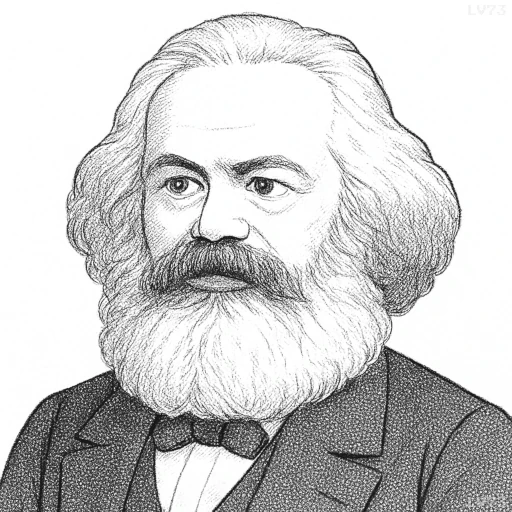“The rich will do anything for the poor but get off their backs.”

- May 5, 1818 – March 14, 1883
- Born in the Kingdom of Prussia (Germany)
- Philosopher, economist, political thinker
table of contents
Quote
“The rich will do anything for the poor but get off their backs.”
Explanation
In this quote, Marx highlights the hypocrisy and self-interest of the wealthy class when it comes to addressing poverty. While the rich may offer charity, assistance, or reformist solutions, they ultimately refuse to relinquish their position of power or change the system that keeps the poor in their subjugated state. The phrase “get off their backs” speaks to the idea that the real solution to poverty is not charity or superficial gestures, but the dismantling of the social and economic structures that perpetuate inequality. The wealthy may offer temporary aid, but they are unwilling to change the system that allows them to exploit the labor and resources of the poor.
Historically, Marx believed that the ruling class—those who owned the means of production—would not willingly relinquish their power or privileges. Even if they were to support reforms that alleviate some suffering, these would often be designed to maintain the status quo rather than create a truly equitable society. Marx saw capitalism as a system in which the rich derive their wealth from the exploitation of the working class. Therefore, any attempts by the rich to “help” the poor often functioned more as a means to pacify dissent or maintain social order, rather than addressing the root causes of inequality and exploitation.
In the modern context, this quote remains relevant when considering the philanthropy of the wealthy, particularly in capitalist societies where economic inequality is rampant. Wealthy individuals or corporations may donate to causes or create charitable initiatives, but they often do so without challenging the underlying power structures that perpetuate systemic poverty. For example, billionaires may fund initiatives for education, healthcare, or poverty alleviation, but still avoid paying taxes or advocating for redistributive policies that would address the root causes of inequality. Marx’s critique remains pertinent in understanding how charity and philanthropy can sometimes be used as a band-aid solution to deeper social issues, rather than seeking transformative change to create a more just society.
Would you like to share your impressions or related stories about this quote in the comments section?



